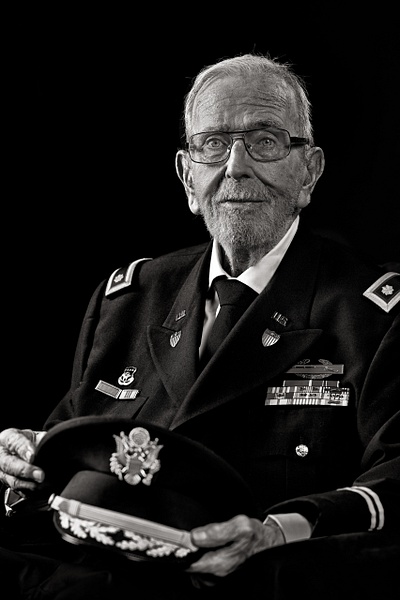Korean War
Click on Veteran's photo to see their service story. These Warriors served during the Korean War
Mickey Strand - Veterans Series View More Photos Skip to Main Content
Click on Veteran's photo to see their service story. These Warriors served during the Korean War
Where can I donate?
I have created a way to accept donations to grow the project, use the WWII Veterans Portrait Series
Please email
Where are you located?
I live in the San Diego area but have traveled to many locations to interview and photograph Veterans.
How Long is an Appointment?
Appointments usually last an hour. But please free up time for Mickey to set up lights and cameras, hold the interview, and take some still photographers for in the project.
Do you accept reservations?
Yes is the simple answer to the question. Each appointment is set up as an individual session. Group sessions have been set up when I visited a senior living facility or many of the California Veterans Homes.
